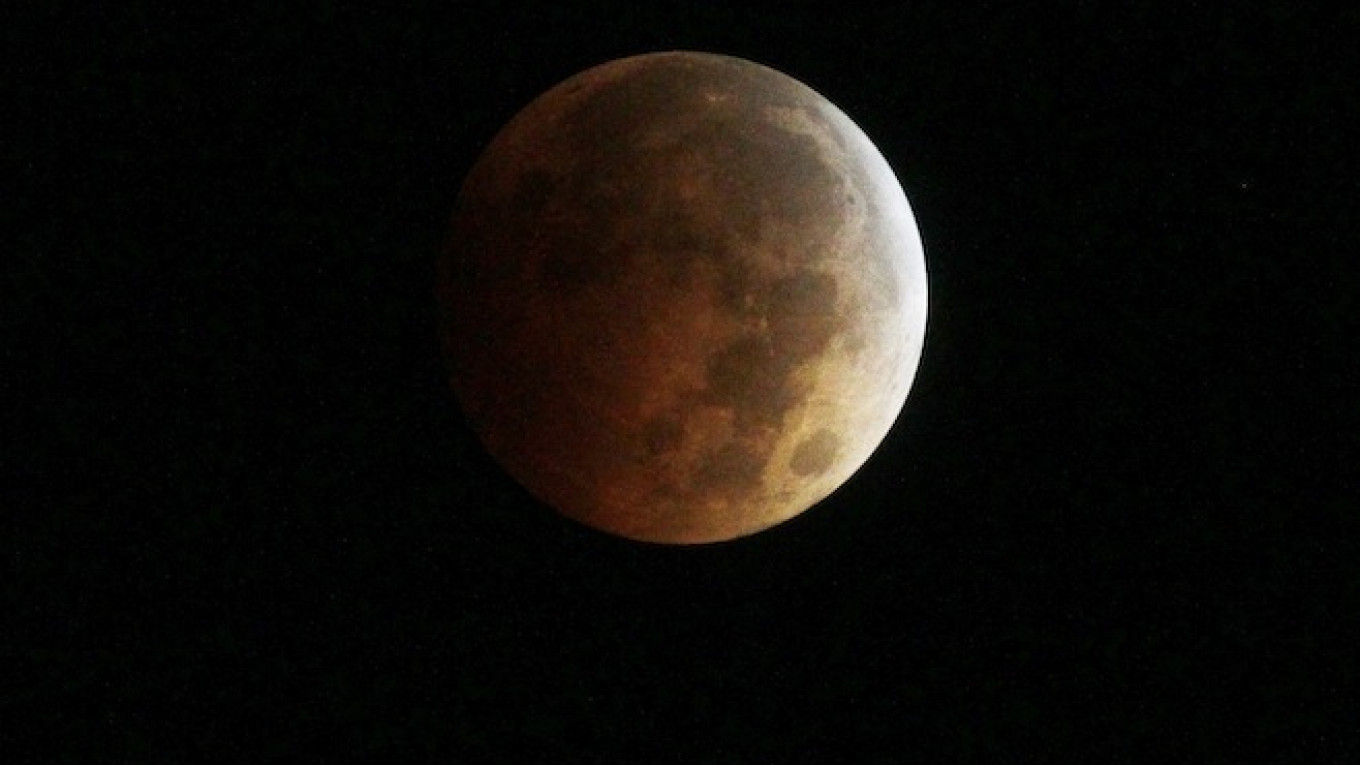Russia may favor putting boots on the moon over financing for the International Space Station (ISS) program, Denis Lyskov, deputy director of federal space agency Roscosmos told news agency TASS on Wednesday.
"We have obligations [to the ISS] until 2020, which we will carry out," Lyskov said. "Concerning the future of the ISS, this decision is not for today. Some analysis needs to be carried out in connection with our lunar program, there needs to be a decision made on how long we need [the ISS]."
The ISS has found itself at the center of Ukraine's crisis, with Russian officials hinting that, in response to U.S. sanctions, Roscosmos may reject a NASA-backed proposal to extend the life of the space station beyond its current 2020 end date.
According to Lyskov, however, Russia's reluctance to commit to an ISS extension has more to do with resource allocation than politics.
Russia receives a relatively low scientific return on its investment in the space station, despite allocating about half of its annual civil space budget on it. Moreover, Roscosmos is now looking to land men on the moon after 2030 — a goal the Soviets abandoned after losing the moon race to NASA in the late 1960s and early '70s.
With this in mind, Lyskov said Roscosmos has developed a special program for developing deep-space exploration, which envisions a manned flight to the moon after 2030, and a robot mission to Mars at some unspecified time.
These ambitious plans are currently being discussed in connection with the upcoming Federal Space Program 2016-2025 strategy document, TASS reported. But before making a final decision, Russia will first need to determine what skills, techniques and technologies participation in the ISS can provide, and how long it will take to acquire them.
Regardless of the station's fate, Lyskov said that Roscosmos intends to make the most of the time left in the ISS program.
Deputy Prime Minister Dmitry Rogozin said in September that the upcoming Federal Space Program for 2016-2025 would include a whopping 321 billion rubles ($8.2 billion) to further develop and utilize the ISS — however, it should be noted that this number far exceeds the 215 billion rubles that Russia spent on the ISS during its construction from 2001 to 2012.
In 2018, the agency will launch a free flying laboratory, known as OKA-T, that will periodically dock with the space station but otherwise fly off to conduct experiments that cannot be performed aboard the ISS.
Russia is also building three additional ISS modules for launch in 2017 and 2018. One of these modules, the Nauka multipurpose laboratory module, was supposed to launch nearly 10 years ago.
The overall cost of Russia's ISS additions, according to a leaked draft copy of the 2025 space program, will be almost 4 billion rubles ($110 million).
Ever optimistic, Lyskov said Russia's three new modules are capable of forming a small space station of their own if the ISS program ends in 2020.
Contact the author at [email protected]
A Message from The Moscow Times:
Dear readers,
We are facing unprecedented challenges. Russia's Prosecutor General's Office has designated The Moscow Times as an "undesirable" organization, criminalizing our work and putting our staff at risk of prosecution. This follows our earlier unjust labeling as a "foreign agent."
These actions are direct attempts to silence independent journalism in Russia. The authorities claim our work "discredits the decisions of the Russian leadership." We see things differently: we strive to provide accurate, unbiased reporting on Russia.
We, the journalists of The Moscow Times, refuse to be silenced. But to continue our work, we need your help.
Your support, no matter how small, makes a world of difference. If you can, please support us monthly starting from just $2. It's quick to set up, and every contribution makes a significant impact.
By supporting The Moscow Times, you're defending open, independent journalism in the face of repression. Thank you for standing with us.
Remind me later.


